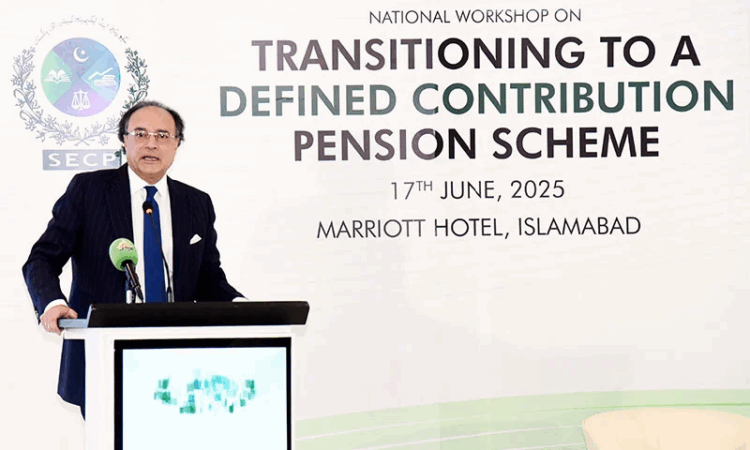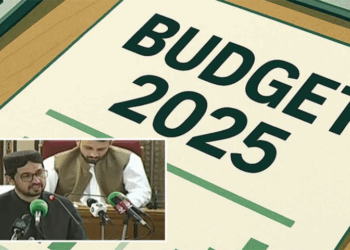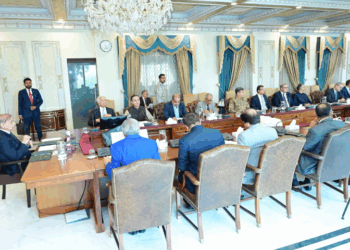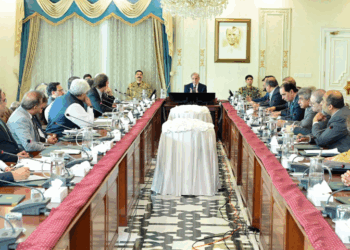Islamabad, June 17, 2025: Federal Minister for Finance and Revenue, Senator Muhammad Aurangzeb, on Tuesday reaffirmed the government’s commitment to implementing structural reforms aimed at achieving sustainable economic growth and long-term macroeconomic stability.
Speaking at the National Workshop on Transitioning to Defined Contribution Pension Schemes, organized by the Securities and Exchange Commission of Pakistan (SECP), the minister said key reforms are being pursued in the areas of taxation, energy, and state-owned enterprises (SOEs).
Highlighting one of the major reformative measures this year, Senator Aurangzeb said the government is restructuring the country’s tariff regime to boost industrial competitiveness. “We are gradually dismantling long-standing protectionist barriers that have hindered industrial expansion,” he said, adding that this would help domestic industries grow and make the export sector more globally competitive.
The finance minister emphasized that the government is also addressing challenges in public finance management, particularly by reducing debt servicing—not just through expected reductions in the policy rate, but through broader fiscal reforms and improved liability management.
“Effective liability management will help create the fiscal space needed to fund priority sectors and enhance overall development,” he added.
Senator Aurangzeb also identified pension reform as a central pillar of the government’s fiscal strategy. He recalled that beginning July 1, 2024, all new federal employees were placed under a defined contribution pension scheme, a critical step in tackling the legacy burden of unfunded pension liabilities.
“This year, the pension bill alone has crossed Rs1 trillion, and we can no longer afford fiscal bleeding in this area,” he noted. He stressed that pension reform was essential not just for financial prudence, but also for macroeconomic sustainability, predictability in public spending, and effective cost management.
He further explained that transitioning from a defined benefit to a defined contribution model empowers employees to manage their retirement savings with greater ownership. “This is more than just a fiscal shift—it is about creating a culture of financial empowerment among public servants,” he said.
In the federal budget for FY2025-26, the government has proposed a 7% increase in pensions, aligned with prevailing inflation to protect pensioners’ purchasing power. Additionally, a progressive taxation measure has been proposed—a 5% tax on annual pension income exceeding Rs10 million, currently under parliamentary review.
“These measures balance relief for pensioners with the need for high-income earners to contribute their fair share to the national exchequer,” Aurangzeb stated, calling for uniform pension strategies across federal and provincial governments.
On geopolitical developments, the minister said the government had held detailed consultations with relevant stakeholders to monitor risks and ensure economic preparedness. “We are focused on maintaining strategic reserves, tracking pricing trends across asset classes, and staying fully prepared for any eventualities,” he said.
Regarding trade talks with the United States, Aurangzeb termed the discussions on tariffs as “constructive and encouraging.” He noted that a positive alignment was emerging between Pakistan and the US, especially in light of recent talks with the US Secretary of Commerce.
“Both countries are moving in the right direction to strengthen Pakistan’s competitive position under the US tariff regime,” he said, adding that the growing strategic partnership with the US would pave the way for deeper economic cooperation and mutual growth.








